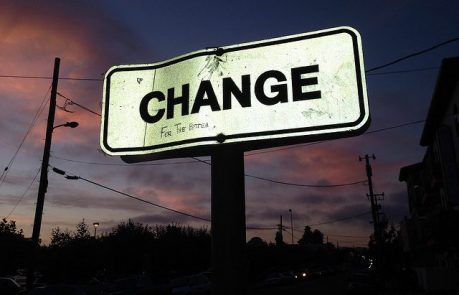I Need to Change My Life, But… HOW?

Do you need something different? Many of us get strongly hit by the awareness somewhere in our life journey that “I need to change my life”.

In my case, this has occurred with great intensity twice, but with most intensity around age 45 — deep in the heart of the midlife transition. This a frequent time for such an awareness, but there can be many other times where we’re struck by the realization that I need to change.
There’s a potential big difficulty, however. It may be completely apparent that I need to change. The difficult part is that it may not be easy to see how.
When the Need to Change is Inescapable
There are many different messages that I might get that would indicate to me that “I need to change my life.” Sometimes these messages may be on the level of basic physical or economic survival. If it is a matter of basic health or even life itself, the requirement for palpable change is clear and very hard to argue with, even if I’m very unclear on how to bring the change about.
However, sometimes the need to change is really just as inescapable, but we can’t see it — or we refuse to do so. We might face a clear inner voice manifesting through anxiety or depression , an intuition, or “hunch”, something that comes through our dream life, or a physical health issue. (Sometimes when we need to bring change into our lives, and we have not yet acknowledged this reality, or are ignoring it, the images in dreams can make this clear in very graphic ways!)
A – If I Ignore, or Run From My Need for Change
It’s possible to run from or deny the part of myself that’s giving me the message that “I need to change”. It’s also possible to just continue on, doing what we’ve always done, staying stuck in a rut, even though we really know that we have to change our circumstances, or perhaps some fundamental attitudes. If we do try to avoid the challenge of change, it often has real consequences.
Being in denial about the need for change can devastate our relationships with others. For example, if I can’t control my anger, or if I can’t be more emotionally available, I may risk alienating or completely losing people who are important to me in my life.
Denial or avoidance of the need to change can even more dramatically impact our relationship with ourselves. As psychiatrist Abigail Brenner stresses, impetus for change may come from an “inner voice” telling us that we have to move to a different place than where we are. Awareness of this sense of call, which Jungians tend to think of as vocation may occur in any of the physical, emotional, psychological or spiritual aspects of our being.
To ignore our vocation can leave us feeling that we’ve missed something very important in our lives. In some cases, it may even feel like our lives are drifting towards meaninglessness.
S – Facing That I Need to Change — Practically
At some point, the fact that I need to change may become inescapable. This may become apparent through very strong emotions, such as intense anger or strong grief, motivate us to move towards something different. Or, we may just come to the point of genuinely feeling intensely that “This is enough. I need to change.” Or our outer circumstances might combine to make it absolutely clear that I can’t continue as I’ve done to this point. The awareness may come to us in a huge variety of ways.
While it’s essential for us to come to the point of recognizing that we genuinely need to change, /a-midlife-transition can help us explore what we feel, helping us to uncover the undiscovered self, and helping us to find ways to make the change real in our lives. The journey towards wholeness. centers on finding ways to move forward on the path of choice and change, so that we honour who we most fundamentally are.
Brian Collinson, Registered Psychotherapist & Jungian Psychoanalyst
[cta]
